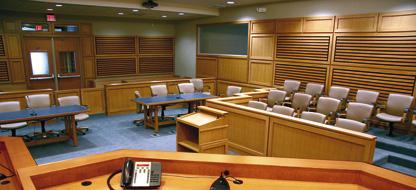Madison has begun implementation of a homeless court that is meant to solve the problem of homeless men and women who rack up thousands of dollars in citations, but have no way to ever hope to pay those fines. But there is one problem — a lack of proper funding.
In 2015, the city provided a meager $10,000 to the program to only service a lucky two people. This year the city has provided another $10,000 with hopes of servicing only one more person than it serviced last year.
Due to the fact there are well over three homeless people in Madison, this program is clearly underfunded.
According to the city attorney’s office, 16 men and two women owe a total of $254,148, another four people owe more than $30,000 and another six people owe more than $10,000.
So if you are only considering those 28 people, the homeless court is only setup to handle 10 percent of the population it was set up to serve.
If Madison is going to do anything about the rising number of homeless people within its city, it is going to have to be a little less stingy with its allocation with funds.
While “testing the waters” for the first year makes sense, not increasing the scope of the special court in turn leaves the rest of the population in the normal system, where they clearly have no hope of paying those fines.
Another aspect of the homeless court is it is only meant to help those in the homeless population who have amassed thousands in fines. What about those who are homeless and struggling to get by, find work and find a way into systemic society? How is a man or woman who is homeless supposed to conjure up the funds to even pay off a $200 fine or worse yet, a $1,000 fine? We should not limit the scope of the homeless court. The best way to fix a problem is by addressing the root of it, which is exactly what the homeless court does.
The homeless court is setup to connect homeless with stable housing, help them explore job opportunities and gain access to health care providers. At 90-day intervals, the court checks in and cuts the fines owed in half if the individual is complying with the program. At the end of the program, the individual owes community service hours.
Of course, programs like require the individual to want to partake in it, but it also requires funding that can help more than just a handful of people.
Treatment Alternative Diversion programs, like the homeless court, are more effective for certain people, — like homeless individuals — than jail or citations would be. They address the root of the problem — homelessness. Citations and fines only compound the individual’s struggles.
A University of Wisconsin study found Treatment Alternative Diversion programs also benefit a state’s finances. According to the study, for every $1 spent on Treatment Alternative Diversion programs, the net benefit was $1.96.
So not only would the homeless court be effective at addressing the root problem involving homeless crime, it is a good investment for the city and the state.
Without the proper funding to back up the promise of the homeless court, those promises will fall flat. Currently only a cherry-picked few are allowed to partake in the beneficial program. Being American has never been about helping only a select few, so it’s time to start expanding the reach of restorative justice programs.
Luke Schaetzel (lschaetzel@wisc.edu) is a sophomore majoring in political science and journalism.


